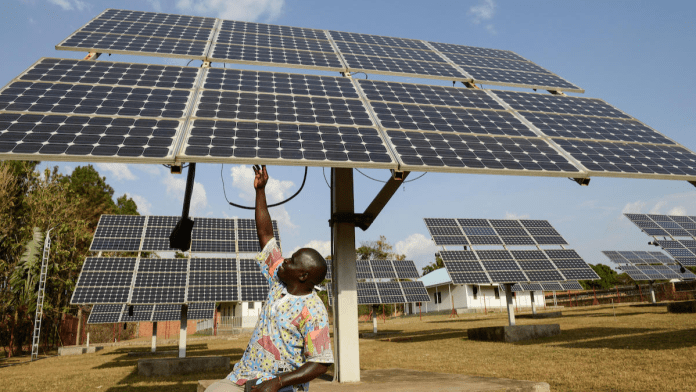🕒 Last updated on August 14, 2025
A new era of sustainable energy-driven manufacturing is dawning in Africa. Across the continent, a wave of technology transfer is bringing advanced solutions from around the world to help cut pollution in some of the most challenging industries.
Africa’s renewable energy wealth meets global innovation
Sectors like steel, cement, chemicals, and transport have been known for high emissions. Now, they are at the center of Africa’s push for sustainable growth.
The change is being fuelled by Africa’s unmatched natural energy resources. The continent receives some of the world’s highest solar irradiation, has strong wind corridors, mighty rivers for hydropower, geothermal hotspots, and rapidly growing hydrogen production hubs. These resources offer Africa a rare chance to skip over older, polluting models and go straight to cleaner, modern methods.
A major global program is backing this shift. Under a new $12.5 billion climate investment plan, seven African countries are set to receive funding to reduce greenhouse gas emissions from heavy industries. Each country can get concessional loans of up to $250 million, with additional investments expected from development banks, private companies, and other partners. This is the largest initiative of its kind aimed at transforming Africa’s industrial base into a low-carbon powerhouse.
🧱 Finland builds world’s largest sand battery — and it’s heating homes without oil or pollution
Technology transfer is a key driver in this process. Asia, Europe, and other nations are exchanging innovations in fuel cell development, hydrogen storage, wind farm operations, and solar manufacturing. These partnerships are not only bringing in hardware and equipment but also knowledge, skills, and proven strategies for building sustainable industries.
Hydrogen at the heart of industrial change
One of the most exciting developments is the rise of green hydrogen. Produced using renewable energy, green hydrogen is emerging as a clean fuel that can replace fossil fuels in both energy production and manufacturing. It can also be turned into products like green ammonia and green iron, which can be exported worldwide while supporting clean industrial growth within Africa.
Several African countries are building facilities to make green hydrogen and related products at scale. These projects aim to supply both domestic industries and global markets where decarbonization is harder or more expensive. By using their natural advantages—abundant sunlight, wind, and land—these nations are positioning themselves as key players in the global clean energy supply chain.
US charges Chérizier, Haiti’s “Barbecue,” over violent crimes and illegal financing
The forthcoming Global African Hydrogen Summit will highlight how African nations are implementing these objectives with the topic “Ambition in Action: Fueling Africa’s Green Industrial Revolution.” The occasion will take place during September 9–11, 2025, in Windhoek, Namibia. It is expected to draw global energy leaders, technology providers, and policymakers to discuss large-scale projects, investment opportunities, and cross-border trade in clean energy.
Partnerships with global companies are accelerating this transformation. Major industrial firms are investing in hydrogen fuel cells, hydrogen-powered engines, electrolyzers, and infrastructure to store and transport the fuel. These investments aim to make hydrogen a central part of Africa’s journey toward cleaner industries and climate-friendly economic growth.
Building industries without borders
Co-creating innovative solutions is more important to Africa’s green transformation than merely importing technology. This involves training local workers, developing regulatory frameworks, and setting up trade routes that allow clean energy to move easily across borders. Skills training is especially important, as it helps local communities take on new jobs in renewable energy, engineering, and manufacturing.
Hottest Month, Highest Costs: How Climate Extremes in July 2025 Shook the Global Economy
In many cases, African countries are working with partners from China, Japan, and Europe to design and operate clean energy systems. For example, expertise in integrating renewable power into national grids, operating large wind farms, and setting up hydrogen refueling stations is being shared across continents. This kind of cooperation ensures that Africa can build industries that are efficient, competitive, and ready to supply both local and international markets.
Mineral wealth is also playing a crucial role. Africa has abundant supplies of vital minerals, such as platinum for hydrogen fuel cells, which are required for renewable energy technology. By using these resources within the continent, African nations can build entire clean energy supply chains locally—from raw materials to finished products—reducing reliance on imports and boosting economic resilience.
Energy without borders is more than a slogan. It is a practical approach to solving shared global challenges. By connecting renewable energy potential with international expertise, Africa is building an industrial base that can grow without harming the planet. From hydrogen-powered steel production to solar-driven chemical plants, the projects underway today are setting the stage for a new kind of industrialization—one that benefits both Africa and the world.

